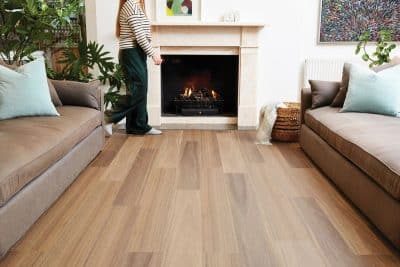
Undertaking home renovations can offer more advantages than simply having a nicer interior. When you renovate parts of your home, you are actually creating an investment advantage for yourself by increasing the overall value of your home. The financial benefits of home renovations include both short-term savings and long-term value increases, making your home a more appealing and valuable asset.
The Growing Trend of Home Renovations
Americans are investing more and more in home renovations. Experts say that homeowners spent close to $500 billion on renovations in 2023, and the number is rising. There are many reasons why home renovations are growing in popularity, beyond simply the fact that upgrading your home makes it more attractive and comfortable. Upgrading to greener and “smart” features is becoming increasingly popular.
Successful home renovations help increase houses’ sustainability, reduce carbon footprints, lower energy bills, and increase home values for future buyers. They also help reduce the danger level associated with old-style wiring, appliances, and other outdated features. In the sections below, we will discuss different popular renovations and the various financial advantages they afford.
Types of Home Renovations
While many types of home renovations can be useful, some are particularly beneficial in increasing your home’s value and helping you save money:
- Making Your Home Energy Efficient: Renovations like adding insulation, switching to energy-efficient heating and air conditioning, installing LED lighting, and making certain features of your home smart can lower your electricity bills by as much as $200 a year. While they might require a substantial initial investment, these upgrades will pay for themselves over time. Additionally, the value of your home will increase significantly as a result.
- Kitchen Remodeling: Modern kitchen features are both more aesthetically appealing and more efficient than those of just a few years ago. Improvements such as switching to energy-efficient appliances, installing custom cabinets, and switching to granite countertops will make your kitchen much more attractive to future buyers.
- Bathroom Renovations: Bathroom furniture is similarly becoming more energy-efficient and functional. Improvements you can make include buying eco-friendly bathroom furniture that uses less water, installing sustainable flooring, and creating space that uses more natural light.
- Curb Appeal: Improving the appearance of your home’s exterior will make it much more pleasant for you and more attractive to future buyers. Renovations can include landscaping the area around your home, repainting your house, and maintaining the appearance of your lawn.
Financial Benefits of Home Renovations
There are both short- and long-term financial benefits to home renovations. If the initial investment seems overwhelming, consider the long-term returns. With certain kinds of renovations, it will take time to make back the money you’ve spent. But if you plan carefully, you can determine how long it will take before you can start to benefit from your upgraded home features.
Short-Term Benefits
The most obvious benefit of making home renovations is that you will increase the comfort level and aesthetic value of your home, making it more pleasant to live in. You will also save money on reduced bills and maintenance costs when you make modern upgrades to your home.
Whether your upgrades include switching to energy-efficient materials or heating systems, or even upgraded appliances, newer home items are generally more energy efficient than older ones.
Long-Term Benefits
Spending less money on maintenance and repairs by having newer, more reliable home features means you will eventually start making back and saving the money you invested in renovations.
You will also be increasing the value of your home, which can be particularly advantageous during economic slowdowns or recessions when property values may otherwise stagnate or decline. When it comes time to sell your home, your appraisal will be significantly higher due to the upgraded materials and home appliances, making it much more appealing to potential buyers. Depending on the type of upgrades you make, you might also be able to make energy-efficient deductions on your taxes.
Financing Home Renovations
Making major renovations to your home usually carries a significant price tag. Even though the renovations you make will eventually pay for themselves over time, many people find the initial investment challenging. Fortunately, there are several good financing options available.
Contractor Financing
Contractor financing for home improvements allows people to pay back the cost of renovations in gradual installments. Contractor financing comes in different forms:
- Split Payments: Involve breaking down one large payment into two or more payments made through different payment methods.
- Lines of Credit: Allow customers to finance renovations up to a specific amount credited, similar to a credit card. Getting lines of credit gives you greater flexibility in what you choose to finance over the course of your renovations.
- Home Remodeling Loans or Renovation Loans: Customers can get loans for renovations similarly to how they would get them from a bank.
- Low APR Loans: You can get a loan that allows you to pay back money with a low APR suitable for your financial situation.
Home Equity Loans and HELOCs
There are also financing options based on your home’s mortgage. These come in two major forms.
- Home Equity Loans: Loans based on the home’s mortgage, where customers take out a certain amount against the amount they have already paid off.
- Home Equity Lines of Credit (HELOCs): Similar to home equity loans but are lines of credit against the available equity of a home. With them, your home becomes the collateral, and you have a revolving credit line that you can use for home repair. They generally involve lower interest rates than other types of loans, and the interest may be tax deductible.
Potential Risks and Mitigating Strategies
For all the benefits home renovations provide, there are some risks involved. If you want to undertake a major renovation, you should first research the renovation itself and familiarize yourself with the going rates of materials, contractors, and quality standards. Be sure to look up reviews on any potential contractors with whom you might work and compare different contractors in your area before making a decision.
You should also ensure you can make timely and accurate payments for whatever type of financing you choose. Work out your home improvement budget in advance and calculate the amount you will have to spend until your payments are complete. Not making timely payments will cause your interest to rise and your payment amounts to snowball.
Conclusion
There are many financial benefits to home renovations, both in the short and long term. Upgrading features and making your home more energy-efficient can help lower energy bills, make your home more pleasant to live in, and ultimately increase your home’s value for future buyers. When making renovations, be sure to do thorough research in advance and find the best contractors in your area who will provide the best and most economical service possible.








